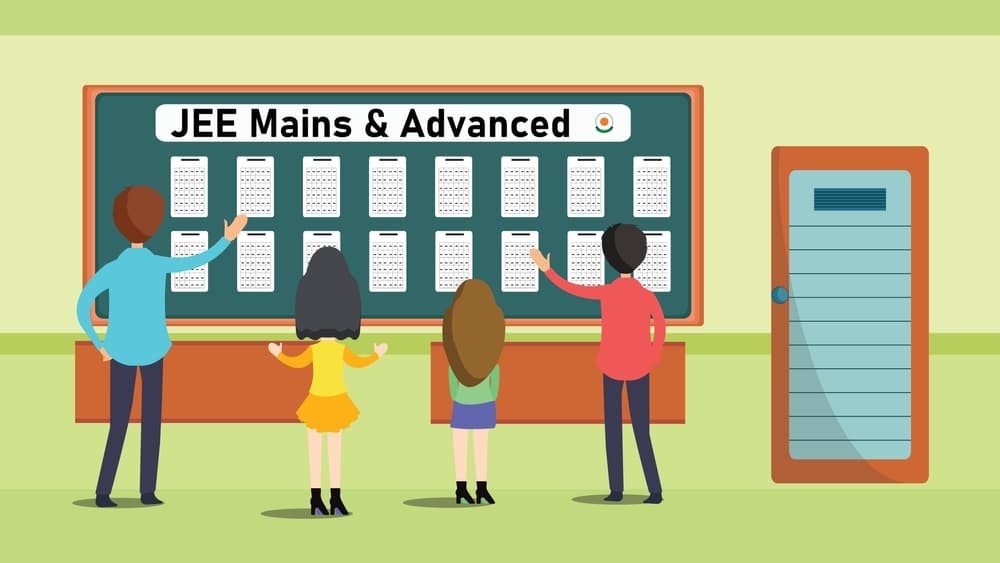Canada’s economy and vibrant cities represent hope for millions of skilled immigrants worldwide, including India. The preferred method for them is via the Express Entry System. Launched in 2015, this program has transformed how Canada selects its permanent residents. The system assists in connecting skilled immigrants with Canadian opportunities via a transparent points-based system.
Numbers don’t lie. In 2023, 47% of successful Express Entry candidates hailed from India. That is no surprise. Indians bring a very powerful mix of youth and education, along with excellent English proficiency. They have proved to be exemplary in industries like tech and medicine. Canada is facing a lot of skill gaps in these sectors. Hence, Express Entry emerges as a great way to fill the gaps and provide a rewarding vocation to people migrating to the nation.
This guide covers all major aspects of Express Entry. You will get to know about basic eligibility and master the points system.
What is Express Entry?
Express Entry is Canada’s flagship immigration management system. Introduced in 2015, it revolutionized the permanent residency application process. The system functions as a digital platform that manages skilled worker applications through three federal programs. It evaluates candidates based on multiple criteria including age, education, and work experience.
Unlike traditional immigration systems, Express Entry operates through regular draws. These draws occur approximately every two weeks. The highest-ranking candidates receive Invitations to Apply for permanent residence, ensuring Canada selects the most qualified individuals.
Federal Skilled Worker Program
The Federal Skilled Worker Program (FSWP) serves as the primary immigration pathway for international professionals. Candidates must meet minimum requirements in three areas. First, they need at least one year of continuous work experience in a skilled occupation.
Second, they must demonstrate language proficiency in English or French. Third, they should hold a post-secondary degree or equivalent. The program uses a six-factor selection grid. Candidates must score at least 67 points out of 100 to qualify. These factors assess human capital rather than specific occupations.
Federal Skilled Trades Program
The Federal Skilled Trades Program addresses Canada’s growing demand for qualified tradespersons. Eligibility depends on proven experience in specific trades. Candidates need two years of full-time work experience within the last five years. Language requirements vary by trade category.
The program accepts lower language scores compared to other streams. CLB 5 for speaking and listening suffices. Reading and writing require CLB 4. Candidates must either obtain a valid job offer or hold provincial certification in their trade.
Canadian Experience Class
The Canadian Experience Class targets individuals already working in Canada. This stream values Canadian work experience above other factors. Candidates need one year of skilled work experience in Canada. This experience must be full-time or equivalent in part-time hours. The program requires language scores that match occupational requirements.
Applicants in NOC 0 or A positions need CLB 7. Those in NOC B positions require CLB 5. Educational credentials from outside Canada don’t require assessment. This streamlined approach benefits temporary workers and international graduates.
What are the benefits of the Express Entry Program?
Express Entry offers significant advantages for skilled trade workers. Processing times are faster, typically 6 months or less. The system accommodates trades through flexible language requirements. Your skills will matter more than a rigorous educational qualification criterion. So that is a great advantage.
Regular draws mean multiple chances each year. Provincial programs often target specific trades. Even better, there’s no complex paperwork. You can upload documents digitally. Approved traders can bring their families as well. Work permits often arrive within weeks.
What is the eligibility for Express Entry?
This program welcomes candidates who meet specific criteria. You must first qualify for one of three programs: Federal Skilled Worker, Federal Skilled Trades, or Canadian Experience Class.
Basic requirements include valid language test results and proof of funds. Your age doesn’t disqualify you, but scores peak between 20 to 29 years. Your educational qualification will be checked if obtained outside Canada. Clean police certificates and passing medical exams are mandatory to be eligible for this program.
Another big factor is the work experience. Its requirements will vary by program. Skilled workers need one-year minimum, while trades require two years. Canadian experience class calls for recent Canadian work history.
What are the requirements for Express Entry?
You must meet core eligibility criteria to have a valid profile. You need to showcase compulsory language proficiency in English or French. This quality is usually proven through IELTS or CELPIP tests. A post-secondary education assessed through ECA is essential for most candidates.
Work experience requirements vary. Federal Skilled Workers need one year of continuous work. The Trades Program wants two years in a qualified trade. Canadian Experience Class requires 12 months of Canadian work history.
Additional requirements include proof of settlement funds. This may range from CAD $14,690 (single person) to $27,297 (4 family members). Plus, you need to have a valid passport and police clearance certificates. Medical examinations must be completed by approved physicians.
Comprehensive Ranking System Explained
Express Entry candidates would be assessed on several parameters. Fulfilling these will earn points for your profile. This way, CRS uses a points-based method to evaluate candidates. Those who score the highest out of 1200 points will be invited to apply for permanent residence during the draws.
Let us take a look at these vital CRS factors –
Core Factors:
Age impact is significant. Candidates aged 20-29 receive a maximum of 100 points. Points decrease after 30 years of age. Your education level matters immensely. A master’s degree scores higher than a bachelor’s. Language skills in English or French are crucial. You need CLB 9 for maximum points in this particular aspect. Work experience also carries tremendous weight. More years of experience translate to higher scores, with each year adding valuable points.
Skill Transferability Factors:
Your skills must align with Canadian standards. Education combined with language proficiency can earn up to 100 points. Work experience paired with language skills adds another potential 100. Foreign work experience counts. Canadian education amplifies your score. Technical and trade qualifications receive special consideration. Professional certifications boost points significantly.
Additional Points Factors:
Provincial nominations are gold – they add 600 points instantly. Arranged employment brings 50-200 points over and above these 600 points. Canadian education credentials earn up to 30 points. French language skills and the presence of siblings offer bonus points. In many cases, even spousal factors can contribute significantly. These points often make a difference in selection draws.
How Points are Calculated:
The CRS calculator is precise. Single candidates can earn up to 500 core points. Married applicants split some categories with spouses. Human capital factors multiply with skill transferability. The system updates automatically. If we observe closely, we see that every factor has clear documentation requirements. Hence, it can be said that the points calculations are transparent and verifiable.
To end, we can say that those scoring in excess of 600-700 have a very good chance of getting selected for the draws.
How much does the Express Entry Cost?
The Express Entry process involves multiple fees.
- Your initial application costs CAD $2300 per adult applicant and $4500 for a couple.
- Language tests like IELTS cost approximately CAD $300.
- Educational Credential Assessment fees range from CAD $200 to $300.
- Medical examinations average CAD $450 per person.
- Police certificates vary by country, typically CAD $50-100 each.
- Biometrics would come to $85 per person.
What is the application process for Express Entry?
Creating Your Express Entry Profile
Start by gathering your essential documents. You might need your passport, education credentials, and work reference letters. Create your profile on the IRCC website. Enter your personal information accurately. Double-check every detail before submission. This profile is your digital immigration identity. Hence, you need to make sure to make it count.
Document Requirements
Your documents tell your story. You should arrange for all educational certificates. Also, get detailed work experience letters from previous employers. These must include your job title, duties, and dates of employment. Salary information helps, too. Keep digital copies ready. Translations must be certified if documents aren’t in English or French.
Educational Credential Assessment (ECA)
Your foreign education needs validation. For this, you should pick an approved assessment organization like WES. Submit your transcripts and degrees. Wait approximately 20 days for results. Keep your ECA report number safe. You’ll need it for your profile. This assessment proves your education meets Canadian standards.
Language Testing
Book your IELTS or CELPIP test early and make sure to practice thoroughly. You need scores in reading, writing, speaking, and listening. Higher scores mean more points. Tests are valid for two years. Take the test again if you think you can score better. This is needed because every point matters in Express Entry.
Job Bank Registration
Another good idea is to think about registering with Canada’s Job Bank. While optional, it connects you with Canadian employers. Create a compelling resume and highlight your skills and experience. Make your profile stand out. A job offer can significantly boost your chances.
Receiving an ITA
Monitor Express Entry draws. They happen every two weeks. If selected, you’ll receive an Invitation to apply. Here, you need to act fast – you have 60 days to submit your complete application. This is your golden ticket. So don’t waste it.
Submitting the Complete Application
Being organized is crucial here. You should upload all required documents. Include police certificates from every country you’ve lived in. Complete medical examinations at approved centres. Pay your fees correctly. Submit biometrics when requested. It is wise to triple-check everything before final submission.
After Submission
Track your application online. Respond promptly to any requests for additional documents. Keep your documents and profile updated. Don’t make travel plans yet. It is prudent to wait for approval as processing typically takes 6 months.
Tips for Improving CRS Score
You have seen that the Comprehensive Ranking System (CRS) score is a key aspect of your success in Express Entry. It can significantly enhance your chances of receiving an Invitation to Apply (ITA) for Canadian immigration. Here are some actionable tips-
– Begin with improving your language test scores. A higher band in IELTS or CELPIP can dramatically increase your CRS points. You may retake the test if needed and invest time in focused preparation.
– Exploring additional education is another strategy. Completing a diploma, degree, or certification can fetch you extra points. But first, you should ensure your credentials are recognized in Canada by completing an Educational Credential Assessment (ECA).
– Provincial Nomination Programs (PNPs) offer another route. These programs provide a substantial 600-point boost to your CRS score. It is wise to research PNPs that align with your profile and actively apply for them.
– A valid job offer from a Canadian employer also adds valuable points to your CRS score. For this, you can use job portals and networking platforms to connect with potential employers.
– If you’re married or have a partner, leveraging their credentials can help. Your spouse’s language proficiency, education, and work experience may contribute additional points.
Every improvement counts. Be strategic and focus on presenting the strongest profile possible to maximize your CRS score. Doing so will help you move closer to your dream of immigrating to Canada.
Conclusion
Immigrating to Canada through the Express Entry system is an achievable dream with the right preparation and strategy. For this you need to grasp the process and meet the necessary requirements. This way, you can increase your chances of success.
Stay proactive throughout the journey. Ensure your documents are accurate, meet deadlines, and address any gaps in your profile.
The future of Express Entry looks promising, especially for skilled workers from India. You can start today and take one step closer to your new beginning.





